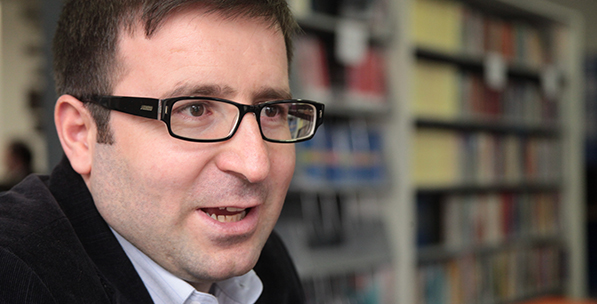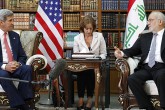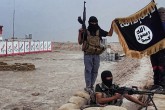Last week, U.S. President Barack Obama announced a four-stage plan to combat the ongoing Islamic State of Iraq and al-Sham threat in the Middle East. Daily Sabah spoke with SETA Researcher Dr. Mehmet Özkan, the director of the International Center for Terrorism and Transnational Crime, about Obama’s plan, its efficiency, Turkey’s position in this conflict and the possible solutions for the situation.
How do you evaluate the four-stage plan to combat ISIS announced by Obama?
There are expressions implying the U.S. would continue its air raids and its cooperation with the neighboring countries. It can be seen that there is almost nothing new in the plan. However, this was important in the sense that the U.S. has now stated a clear intervention strategy.
We can interpret the emphasis on Syria in Obama’s speech as an effort to refute the allegations that the U.S. was trying to cooperate with Bashar Assad to terminate ISIS. The plan fundamentally aims to maintain the ongoing air raids on ISIS and arm local elements such as Kurds in the war against ISIS.
Accordingly, diminishing the support given to ISIS by Sunni groups through establishing an inclusive government can be seen as the continuation of the plan. However, I don’t expect the establishment of an inclusive government in Baghdad, at least not in the short term.
Visits by U.S. Secretary of State John Kerry to the region can be evaluated as an effort to restructure Iraq after weakening ISIS.
Do you think that the ISIS threat could be terminated if Obama’s plan is put into action?
I don’t think so because there is more than one dimension to the emergence of ISIS. The Arab Spring provided the chance for Salafis and radical groups to represent themselves in politics. However, with the regression of the Arab Spring, these radical groups are feeling alienated. I think providing political representation to the radical groups is the top priority. Secondly, it is known that Sunni groups in Iraq support ISIS because they are fed up with Iraq’s central government. Ending the sectarian politics and establishing a new inclusive government in Baghdad is essential to diminishing the support for ISIS. Thirdly, because the other Islamic movements in the world do not appeal to the young, Salafi and radical movements are on the rise. Groups such as ISIS that claim they have found a solution for all of the problems by interpreting a couple of ayahs become more attractive for young people. To solve problems originating from structures such as ISIS, religious policies should be restructured.
Without having permanent solutions in these fields, threats from radical groups like ISIS will continue.
How do you respond to the conspiracy theories that claim ISIS was established by the intelligence agencies of some countries?
I don’t think that analyzing these theories is relevant in the struggle against ISIS. We have a reality, and this issue needs to be resolved. The founders of ISIS and with whom they have relations can be the topics of another discussion, but these discussions prevent us from facing the real issue. This is a group that has its own military and economic power and agenda; therefore, it is more important to provide a policy against this structure. After 10 years of experience, the Turkish intelligentsia needs to give up interpretations that focus on what others did. What we should do and which policy we should produce is much more important than that. I think that statements such as these neglect freedom in the intellectual sense and are not healthy.
Where is Turkey in this equation?
Turkey knows that ISIS is a threat; however, Turkey is not able to act as the vanguard because of the 49 diplomatic personnel being held hostage in Mosul. The number of countries that are participating in the struggle against ISI



